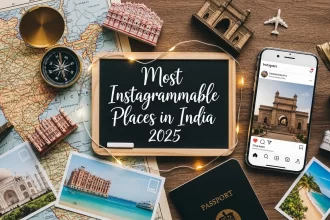In today’s fast-paced world, where the pressures of work, personal responsibilities, and the constant barrage of information leave little time for relaxation, the idea of enjoying simple moments with friends can seem like a distant luxury. Yet, studies have shown that time spent with friends can be far more beneficial to our overall well-being than any medicine or health regimen. As the Hindi saying goes, “Doston sang ghumne se lambi ho sakti hai umar, dawai se bani rahegi duri,” meaning that spending time with friends can actually extend one’s life, while medicines keep us distant from the real sources of joy and emotional fulfillment.
The Importance of Friendship in Our Lives
Friendship is not just a social connection; it’s a deep emotional bond that provides us with a sense of belonging and security. According to numerous psychological and sociological studies, maintaining strong friendships has been linked to a variety of health benefits, from reducing stress and anxiety to boosting immune functions. In fact, having a close circle of friends can act as a natural support system, helping individuals cope with the stresses of life in ways that no prescription drug can.
The Health Benefits of Friendships and Socializing
The link between social connections and longevity has been extensively studied. Research shows that individuals with strong social networks tend to live longer, healthier lives. A study published in the “Journal of Epidemiology & Community Health” revealed that people who have regular social interactions, such as going out with friends or spending time with family, are less likely to suffer from chronic diseases and more likely to experience better mental health. Furthermore, regular socializing has been shown to improve mood, increase life satisfaction, and reduce the risk of depression and anxiety.
One of the primary reasons for these benefits is the reduction of stress. Socializing and engaging in fun, light-hearted activities with friends lead to the release of endorphins, the body’s natural feel-good chemicals. These endorphins help alleviate stress, improve mood, and even enhance cognitive function. It is this reduction in stress that contributes significantly to a longer and healthier life. In contrast, chronic stress, which often comes from isolation, can lead to a variety of health problems such as high blood pressure, heart disease, and even a weakened immune system.
The Role of Travel in Strengthening Friendships
One of the best ways to nurture friendships is by traveling together. Whether it’s a weekend getaway or an international trip, traveling with friends offers opportunities to create lasting memories and strengthen emotional bonds. The shared experiences of navigating unfamiliar places, discovering new cultures, and overcoming challenges together foster a sense of teamwork and trust that enhances the quality of the friendship.
Moreover, travel helps individuals escape the monotonous routines of daily life and provides a mental reset. Exploring new destinations with friends not only improves emotional well-being but also increases happiness levels, which is a vital factor in promoting longevity. Research conducted by the Global Coalition on Aging suggests that taking vacations and spending time away from the pressures of work and home life has measurable benefits for heart health, stress reduction, and overall vitality.
Emotional Support and the Power of Laughter
Friends provide emotional support, and as the saying goes, “Laughter is the best medicine.” Laughter, a natural byproduct of spending time with close friends, is proven to have numerous health benefits. It boosts immune function, reduces pain, and increases blood flow, thereby promoting cardiovascular health. Furthermore, laughter can trigger the release of dopamine, the neurotransmitter associated with feelings of happiness and pleasure, providing a natural high that can rival any prescription drug.
The importance of sharing a good laugh with friends cannot be overstated. In fact, social laughter is a powerful coping mechanism that helps individuals deal with grief, loss, and even physical pain. It is this shared joy and the emotional support of friends that play a pivotal role in promoting mental resilience and well-being.
The Contrast with Medicine: A Reminder of Natural Healing
While modern medicine has undoubtedly revolutionized healthcare and saved countless lives, it’s important to remember that medicine alone cannot provide holistic healing. The focus of conventional healthcare is often on treating symptoms or conditions, rather than addressing the underlying emotional and social factors that impact well-being.
While medications may help in treating physical ailments, they do not replace the importance of social interaction and emotional fulfillment. The saying “dawai se bani rahegi duri” (medicine keeps distance) serves as a reminder that, although medicine can manage disease, it cannot replace the joy, comfort, and support that human connection offers. In other words, no matter how effective the latest pill or medical breakthrough may be, they cannot provide the emotional connection, the stress relief, or the happiness that is cultivated through friendships.
Additionally, it’s worth noting that the over-reliance on medications, especially antidepressants and anxiety medications, has been a growing concern. The side effects of long-term medication use can sometimes outweigh the benefits, especially when emotional support and a strong social network could provide natural alternatives. A balanced approach that integrates both medical treatment and emotional well-being is essential for a fulfilling life.
Building Stronger Friendships: Tips for a Longer Life
Given the significant health benefits of friendship, how can we nurture these connections to enhance our well-being? Here are some tips for cultivating stronger friendships and improving longevity:
- Prioritize quality time: It’s not about how many friends you have, but the depth of the relationships. Spend time with those who make you feel supported and appreciated.
- Travel together: If possible, plan trips with friends. Shared experiences in new places help strengthen bonds and create lasting memories.
- Stay connected: In today’s digital age, staying in touch with friends has never been easier. Use technology to keep in touch, whether it’s through social media, video calls, or messages.
- Be there for each other: Support your friends during tough times, and let them support you. Emotional exchange is vital for maintaining strong friendships.
- Laugh together: Laughter is an instant mood booster. Whether through shared jokes, movies, or funny situations, keep the humor alive in your friendships.
Conclusion: A Life Full of Friendship and Adventure
In conclusion, “Doston sang ghumne se lambi ho sakti hai umar, dawai se bani rahegi duri” encapsulates the powerful role that social connections, particularly friendships, play in enhancing our lives. While medicine can treat physical ailments, it is the emotional nourishment provided by friends that truly enriches our lives, leading to improved mental health, increased longevity, and a more fulfilling existence. By investing in friendships, traveling with loved ones, and sharing joyful moments, we not only improve our own lives but also contribute to the well-being of those around us, creating a cycle of happiness and health that transcends mere medication.
Ultimately, life is about the moments we share with others—the laughter, the adventures, the quiet times spent in each other’s company. These are the moments that truly enrich our lives, extending our years in ways that medicine never can.







